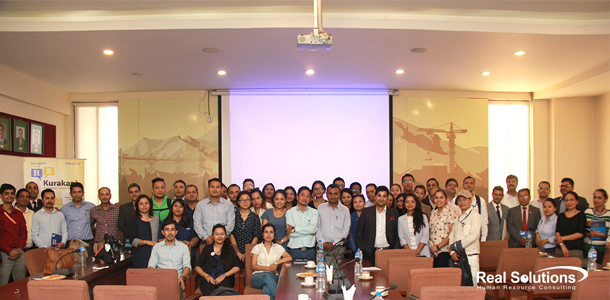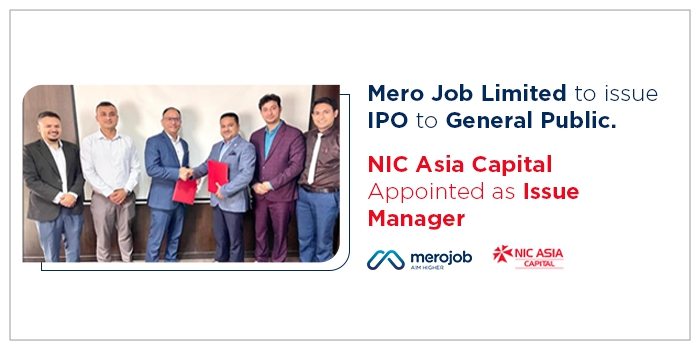Communication is something we do most frequently. We talk to our friends and family without giving much thought to how we are doing it. It’s true that we all have different communication style but no matter what the fact is, no one is a perfect communicator. It might seem easy but communicating effectively, actually takes quite a bit of a skill.
Choosing the right words, listening with our minds instead of just ears, and getting our message across are such skills that we all need to work on. Communication skills are essential no matter which field you work in or who you are. Especially it concerns more when you are in your new job because the workplace can be a highly stressful environment. Good communication skills are vital in helping you to work effectively, build good relationships and prevent unnecessary misunderstandings.
So, how do you enhance your communication skill in your workplace, especially if it’s your new job? Here, let me show you some tips on developing effective communication in your workplace, which are worth remembering.
Listen with Intent
Surely you’ve been expanding your friend circle in your workplace, day by day. Although it’s becoming kind of a challenging task but then, communication is all about information exchange and there’s no place such as workplace to put it in practice. Also, it helps to be a great speaker but being a good listener is essential for proper communication.
If you want to be heard, first you must learn how to listen. Say, one of your office colleagues believes you’re paying attention; s/he is much more likely to listen attentively to you as well. Developing effective communication skills includes listening as well as talking.
Know When to Get Involved
You’ll be facing a lot of conflicts or criticism in your upcoming working days. You should be able to resist the temptation to involve yourself in such situations that do not directly involve you. Unfortunately, everyone has their bad days but it counts on you, how you handle the problem and become a part of the solution.
By asking questions and really listening to the responses so you understand how each person in the disputes feels, you can help two parties reach a resolution that’s acceptable to everyone. Try to encourage an environment where the person with the message to send, does it directly with the receiver and not through people.
Learn from Your Mistake
Whatever the stage of your career, you should always continue to learn. Over your working years, you’ll be working for and with the superior of varying capabilities and talents and even with the staff as well. You should be able to make a point to practice listening, patience, clarity, positivism and self-improvement and you’ll be much better position to work well.
Gradually, you might in some part of your career regret working with some, just because they were poor at handling their duties but sometimes, the bad examples are more effective than the good.
Build Trust
To build trust in the workplace, your communication should be consistent. When you speak, make sure that you are clear and purposeful about your words. While communicating, an interaction is unlikely to be productive unless each side makes an effort to understand the other’s viewpoint.
You should also be careful on pointing out that you’re interested in their talks while you’re busy with your emails. Be consistent in making your actions match your words. Uncertainty in your words can set you up for misinterpretation. If you can sense that a barrier is coming up in your conversation, you should acknowledge it and articulate the different ideas.
Positive Attitude
There are going to be some days where you dread going to work. The main thing to remember is that you should always keep a positive attitude, no matter what personal problems, you might be facing and mixing your feelings with work can create misunderstandings. If you have some issues at work, you should talk them out with people rather than suppressing it.
Regardless of the conversation, try to keep it positive. Even the hardest feedback should be delivered in the positive manner. Although, maintaining a positive attitude at work is not always easy but then your outer feelings can contribute to conflicts at work, which you might not want that to happen. Try to keep in mind about the bigger picture and the long term conclusion.
Clear Point of View
When you speak to others, no matter if you’re talking to your coworkers, secretary or your boss, it is important to be direct and to point with them. It is not polite if you beat around with the things and extend them unnecessarily. If you spend too long getting your point across, they are less likely to listen to you.
So, it’s better to make your story short in order to get their attention. Take time to organize your thoughts and make what you want to say as short as possible. Being clear in the workplace is going to ensure that things get done in a timely manner and in the way you should.
Share your Ideas
If an idea comes to you during a conversation with other co-workers, acknowledge how the input of the others helped create the idea. It’s better to offer your ideas rather than imposing it. You can also give your feedback while you’re in the meeting room because you wouldn’t dare to miss that opportunity. But when you do give your feedback, make sure it’s clear and detailed as possible.
Whoever you’re having conversation with, don’t miss the chance to share your ideas or your feedback. If there is any problem in the workplace, then don’t hesitate to offer your solution if you think it might work. After all, learning is sharing. Well, the good news is that anyone can develop good communication skills. And it’s encouraging to know that even small improvements in your ability to connect with your colleagues will have a profound effect in your workplace.
For more career tips and advice, click here.















